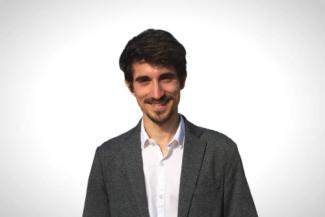Pol Sopeña has devoted his research in laser processing methods. During his doctorate in the University of Barcelona he worked on laser-induced forward transfer for printed electronics applications to later focus his post-doc on ultrafast laser micromachining in the laboratory LP3 (AMU/CNRS).
Host University: Aix Marseille University, France
Host research group or department: Lasers, Plasmas et Procédés Photoniques - LP3
Co-host University: Universidad Autonoma de Madrid, Spain
Secondment institution: MecWins
Advisor: Dr. David Grojo
Co-advisor: Dr. Miguel Manso Silván
Secondment mentor: Dr. Ahumada
My research
Ultrafast laser direct-write of porous silicon structures for biosensing applications
Over the years, porous silicon (PS) has consolidated itself as a semiconductor material with applications ranging from optoelectronics to medicine. Unlike pristine Si, it consists of micro- and nanosized air cavities, or pores, which distribution and size (porosity) determine its properties (refractive index or bandgap). This is achieved by tuning the main parameters in the manufacturing process, being electrochemical etching (EcE) in a hydrofluoric acid solution the main one. Through EcE, a high control of the PS structures has been achieved, however, there are still some limitations in terms of compatibility and fabricating intricate structures. A very interesting application of PS is biosensors, due to its low cost, tunability, biocompatibility, and biodegradability. In the upcoming years, this growing market will require a versatile technique that will allow producing inexpensive tailor-made sensors. For all these challenges, we propose developing the technique ultrafast laser direct-write of PS (LaPSi) to directly create structures in Si. Compared to EcE, the use of infrared laser beams allows digital (from file to sample), 3D (focusing below the surface), local (selective irradiation), scalable (multiple beams), and eco-friendly (no chemical products) fabrication. The study of the technique will lead the way to new applications and enhanced functionalities of PS components and devices like biosensors, but also producing architectured porous materials for envisioning new applications.
To successfully accomplish the objectives of the project, three institutions will participate, creating an international, interdisciplinary, and inter-sectoral environment. The main host, LP3 (AMU), has the experience and facilities to carry out the ultrafast laser processing of Si, where training on related techniques will be received. The co-supervisor from UAM will bring the knowledge on PS structures and biosensors. Finally, the non-academic partner MecWins will act as the secondment host. Their experience in biosensing and the industrial world will be fundamental to face the current challenges of biosensors, train the fellow in company-related tasks, and study the patentability and commercialization of the technique. During the fellowship, the supervisors’ feedback will be fundamental to ensure the success of the project, as well as the planned outreach, exploitation, communication, and dissemination activities.
Date started – Date End
01.11.2022 - 31.10.2024





